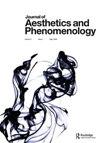The “Jewish Question” and the Question of Being: Heidegger before and after 1945
IF 0.2
0 PHILOSOPHY
引用次数: 0
Abstract
Abstract In this paper, I explain why I have chosen the expression “metaphysical anti-Semitism” to characterize Heidegger’s position in the Black Notebooks. In this context, the strong connection between the question of being and the “Jewish question” is important. My thesis is that Heidegger ties Judaism to metaphysics with a Gordian knot. His ontological, theological, and political accusations against the Jews do not derive from common racism, but from this knot. After 1945, Heidegger does not change his position and does not recognize Germany’s guilt. Yet, the Black Notebooks open a new perspective on his political thought.“犹太人问题”与存在问题:海德格尔1945年前后
在本文中,我解释了为什么我选择“形而上学的反犹主义”这个表达来描述海德格尔在《黑色笔记》中的立场。在这方面,存在问题与“犹太人问题”之间的紧密联系是很重要的。我的论点是,海德格尔把犹太教和形而上学紧紧地绑在一起。他对犹太人的本体论、神学和政治上的指责并非来自普通的种族主义,而是来自这个结。1945年以后,海德格尔没有改变立场,也不承认德国的罪责。然而,《黑色笔记本》为他的政治思想开辟了一个新的视角。
本文章由计算机程序翻译,如有差异,请以英文原文为准。
求助全文
约1分钟内获得全文
求助全文

 求助内容:
求助内容: 应助结果提醒方式:
应助结果提醒方式:


